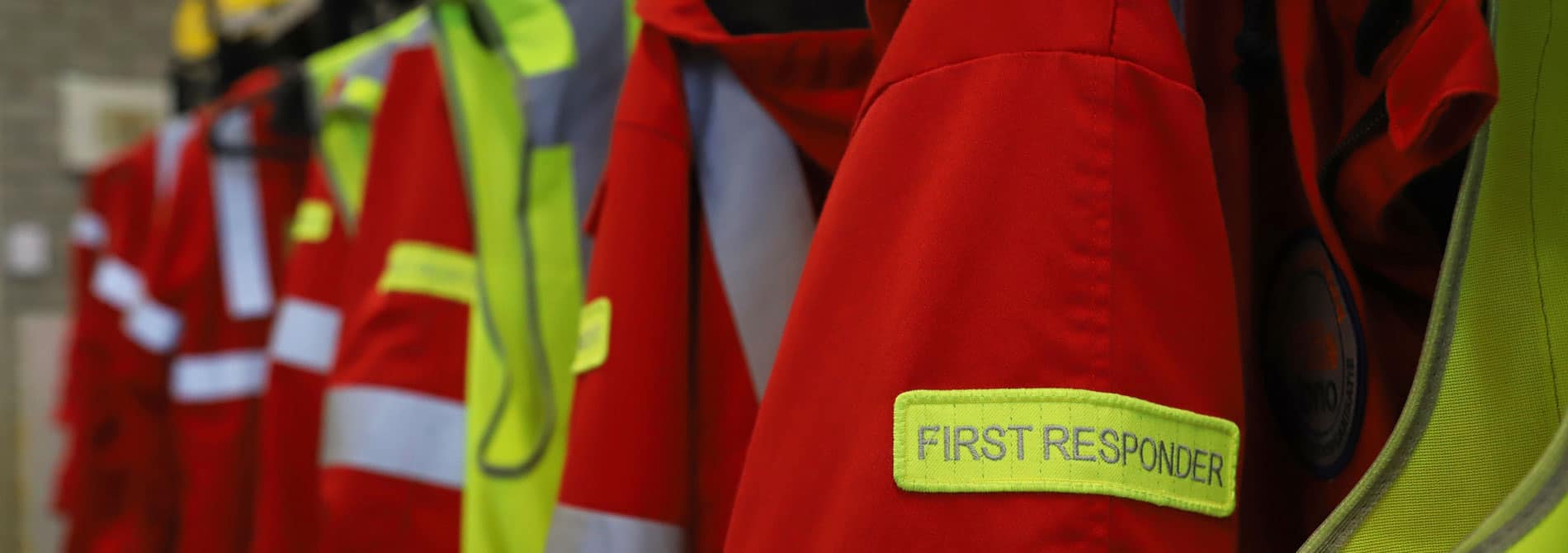When you devote your days to helping others in harm’s way or at risk of being harmed, you may be unaware of the impact the job is having on your mental health and overall well-being. The evidence shows a significant number of cases of substance abuse among men and women employed as police officers, firefighters, paramedics, and other first responders. Today, let’s talk about what leads to substance abuse in these professions and what steps to addiction treatment a first responder can take.
If you or a loved one need help, call our admissions team today at 561-841-1033.The physical and mental demands of a first responder job can take a toll on the health and well-being of police officers, firefighters, paramedics, and others. Left unchecked, a decline in mental health due to depression, anxiety, and PTSD can lead to substance abuse in these uniformed professionals. A first responder who recognizes a growing dependence on alcohol or drugs in connection with their job should seek treatment that addresses both the addiction and the underlying mental health issues created on the job.
First Responders and the Risks for Addiction
The risk factors for addiction in a First Responder job are numerous. These professionals respond to some of the most disturbing and traumatic situations, including domestic violence, homicide, car accidents, house fires, and more. Their decisions are typically made in the moment, often with little preparation time available as a quick response to a crisis is essential for them, and the stress created by these situations can be enormous.
Managing mental and physical stress is a fundamental part of serving in these roles, yet many First Responders may neglect practicing good self-care to sustain their effectiveness on the job. Inattention to self-care can lead to use and abuse of alcohol and drugs as a means of coping with the high levels of stress, and dependence on these substances can grow over time. Not only does the addiction compromise their ability to function effectively on the job, the choices they make can directly impact the lives of others they are hired to serve and save.
Alcohol Addiction and the First Responder
Alcohol as a centerpiece for social gatherings is routine among First Responders who may meet for drinks at the end of a shift. The frequency of those gatherings and the quantity of alcohol consumed there may be higher than in other social settings. Evidence points to excessive alcohol consumption among police officers and firefighters, with one survey determining 29% of firefighters abuse alcohol (National Survey on Drug Use and Health) and another revealing 25% of police officers drink to be part of the team (National Institute on Alcohol Abuse and Alcoholism).
Substance Abuse and the First Responder
The increased risk of substance abuse in First Responders can be connected to the symptoms of mental stress on the job. Sleep deprivation, depression, and PTSD can contribute to the abuse of substances ranging from marijuana to prescription pills. Sleep deprivation appears to be the most common factor among First Responders who work as Emergency Medical Technicians, according to the Substance Abuse and Mental Health Services Administration, with 72% of EMTs surveyed reporting they experience it regularly.
Addiction Treatment for the Uniformed Professional
First Responders who have attempted to begin recovery with a treatment program focused solely on their addiction may discover sobriety is short-lived. One reason for a low success rate in recovery with this type of treatment is a lack of addressing physical and mental stresses as well as the trauma experienced on the job, the factors that first led to the abuse of alcohol or drugs. In many cases, the officer, firefighter, or EMT may remain exposed to the high stress of the job while attempting to stay clean with no new strategies in place to ensure their health and well-being is protected.
A comprehensive treatment program, where addiction specialists understand the impact of high-stress jobs accompanied by trauma, is available to uniformed professionals living with addiction. Intensive outpatient programs and inpatient programs (with medical and detox services on site) can provide First Responders with a safe, supportive environment for recovery with their peers and the option of receiving addiction treatment among people of the same gender.
Hanley Center is a well-known care provider offering a range of treatment programs targeting the recovery from substance use, mental health issues, and beyond. Our primary mission is to provide a clear path to a life of healing and restoration. We offer renowned clinical care and have the compassion and professional expertise to guide you toward lasting recovery.
For information on our programs, call us today: 561-841-1033.




